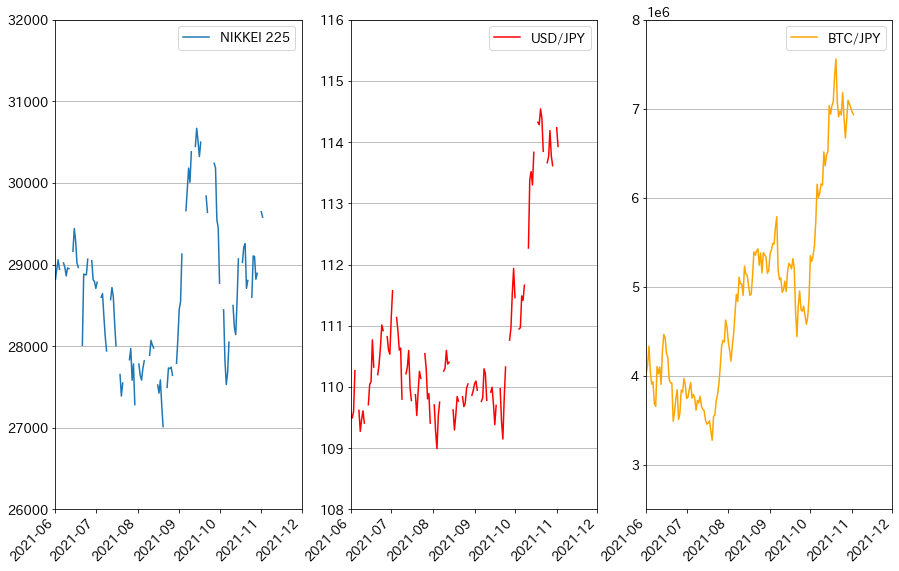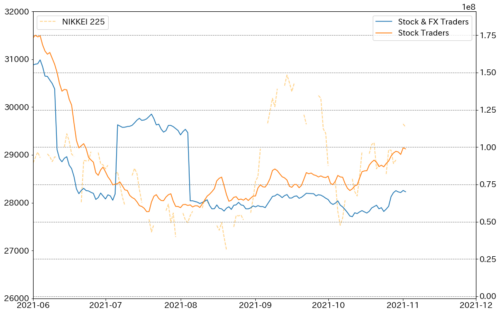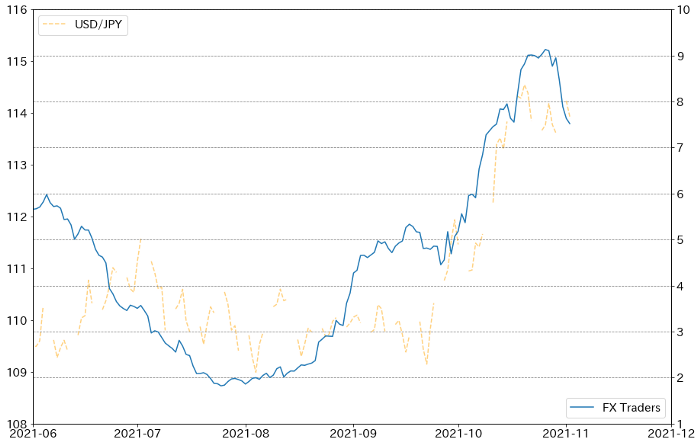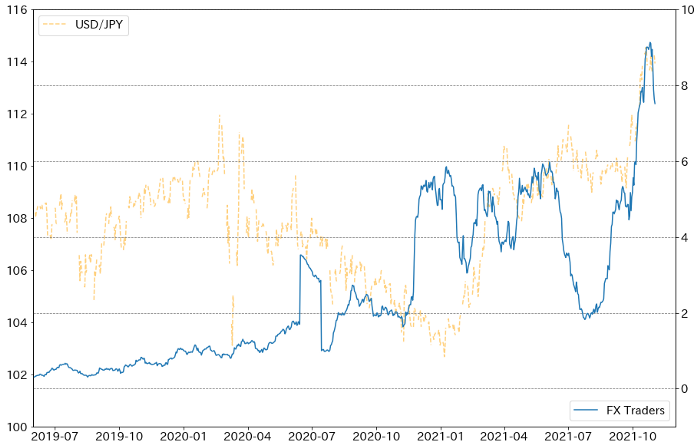By Yuya Hasegawa, a Market Analyst at bitbank, inc.
It has been a bit of a busy couple of months for the Japanese investors and traders alike, as the Nikkei Stock Average (Nikkei henceforth) — the most prominent stock index in Japan — going literal roller coaster, and JPY plummeting to multi-year low against the greenback (Fig. 1).
Nikkei rallied back in September after former Prime Minister of Japan Yoshihide Suga, struggling to maintain his popularity, announced that he would step down. However, the September gain was almost immediately wiped out as the new leader of the ruling Liberal Democratic Party (LDP), Fumio Kishida, was chosen. Kishida is a big advocate of structural reforms and wealth distribution which, in the eyes of overseas investors, seemed all confusing — since there is just not enough growth to distribute — and unnecessary.
However, Kishida’s promise for a large stimulus package saved the index from plunging below the September low, and his party’s victory at the Oct. 31 general election pushed up the index to just inches away from ¥30k.
As for the Yen's nose dive, it was caused primarily by the widening Japan-US yield spread, which was in turn caused by the impending beginning of the Fed’s tapering of monthly bond purchases and the fear of rising inflation in the states.

Source: finance.yahoo.com, bitbank.cc
Meanwhile, Bitcoin climbed more than 100% against JPY since the July bottom, as it was adopted as an official currency in El Salvador, gained traction as an inflation hedge, and the first ever ETF linked to its futures was listed in the states. So, the past few months seemed like a fairly good opportunity for the Japanese investors and traders to dip their toes into cryptocurrency to circumvent the stock market volatility and/or the yen’s depreciation.
In this entry, we will examine daily JPY deposit patterns of bitbank users who have more than one year of experience in either stock market, forex, or both stock market and forex trading to see whether participants in these traditional markets were interested in crypto and possibly hedging risks with them.
(The sets of daily JPY deposit data shown in this report are the 30-day average of respective raw values indexed on the 1st of January 2020.)
Firstly, let us look at the Nikkei and deposit patterns of stock market participants on our platform (Fig. 2). It is apparent that their interest in the crypto market was fading away during June and July when bitcoin was testing the ¥3.2 million (roughly $29k) support.
The deposits from the users who have experience only in stock market seems to have bottomed out since August, as both Nikkei and bitcoin bottomed out at roughly the same time, but it seems like the Nikkei’s ‘roller coaster ride’ from the beginning of September to the beginning of October did virtually nothing to significantly alter the deposit pattern. Furthermore, the deposits from users with experience in both stock market and forex trading have been gradually declining during the same period.


Source: finance.yahoo.com, bitbank.cc
This was a bit of a surprise, but given Kishida’s victory was a huge surprise for the market — most of us thought Taro Kono would be the next Prime Minister — , maybe Japan’s stock market participants were not quite prepared to reallocate their funds to alternatives like crypto. Or, simply, their risk appetite was suppressed by the so-called ‘Kishida Shock’. In fact, the deposit from the stock market participants went slightly higher during the aftermath of the Kishida Shock, and kept going higher after the LDP solely secured the majority in the lower house.
On the other hand, in stark contrast to the figures above, the deposits from the users with experience only in forex trading rose sharply in tandem with USD/JPY’s rise since the end of September, indicating that these users are hedging the yen’s depreciation by buying crypto (Fig. 3). On top of that, not only has their daily deposit spiked up in the last month, it has hit a new all time high on our platform (as far as we can collect the data) (Fig. 4) .
This is somewhat understandable, since retail forex trading is speculative in nature so these users are more likely to take risks and invest in crypto to prevent their profit from depreciating in value.


Source: finance.yahoo.com, bitbank.cc


Source: finance.yahoo.com, bitbank.cc
In summary, it is likely that the money inflow from the Japanese stock market to the crypto market hinges largely on overall market sentiment — whether its risk on or off situation, while retail forex traders are closely observing the yen’s movement in the money market.
